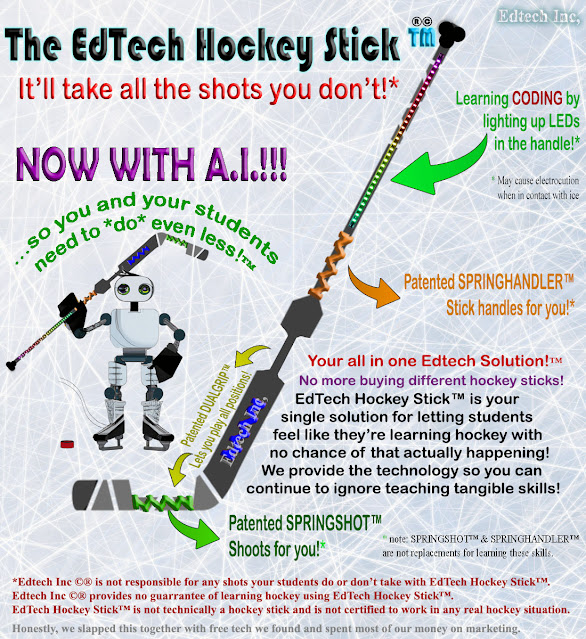I’ve been lucky enough to find myself in Canadian classrooms from St John’s to Vancouver over the past year. Canada is the only developed country in the world without a national education strategy, so this isn’t something many educators get to experience. The only people who do span our country are the edtech companies that have surged into being to resolve a digital skills gap that doesn’t look to be going anywhere any time soon.
At its heart the widening digital divide is a inclusion and equity problem. Students who can’t afford tech at home lack familiarity and fall behind when schools bring it in with no training for staff or students. It would be more productive if education in Canada did more than talk about DEI, but that would require vision which we lack.
In my travels I’ve come across many edtech ‘solutions’. These often involve off-the-shelf technology that has has been branded to meet a specific need in a ‘turn-key’ way so learning essential digital skills doesn’t actually require any on the part of the instructor. Of course, this all comes with a huge bump in price. I love seeing $15 open source Arduino microcontrollers paired with $10 in sensors and called a ‘climate change’ edtech kit, yours for $80! In many cases a hard sell accompanies these kits that are guaranteed to teach the STEM skills you don’t have. UNESCO has something to say about this global phenomenon:
 |
| UNESCO’s 2023 Technology in Education, a tool on who’s terms? is well worth a read. With Canada’s lack of a national education strategy, we have to find vision elsewhere. |
The frustration around this has been gnawing at me and when I woke up this morning I had the edtech hockey stick floating in my mind, so I made some marketing for it:
 |
| It’s satire, it’s supposed to be over the top or it won’t land the satire. |
The hockey metaphor (I hope) brings home the absurd nature of the edtech dance we’re in. Anyone who actually plays hockey will take one look at it and laugh. It looks like it might work like a player goalie stick, but it will actually do neither job – it’s the product catering to ignorance.
The actual solution is to learn digital technologies and media from the ground up instead of implementing patches like Chromebooks, the edtech hockey stickest of them all. This is a one trick pony that ties learning to a single multi-national’s browser and cannot provide any locally processed content. The cloud is where edtech solutions thrive because you can easily monetize access. The hard sell for strapped school IT departments is that Chromebooks don’t give you network headaches because they can barely do anything. Like the edtech hockey stick they look like they can do it all.
NOTES
There is no such thing as “Canadian Education”. The PISA results everyone waves the flag about happen on the back of the four largest provinces. If you’re elsewhere in the country you may be below the world average.
https://www.fraserinstitute.org/blogs/pisa-results-a-breakdown-by-province
“PISA results show each of the Big Four provinces of Ontario, Quebec, Alberta and British Columbia achieving significantly higher average reading scores than all G7 member countries except, of course, Canada. The Big Four also outperformed five of these six G7 countries in math and science (the exception being Japan, which scores below Quebec in math and below Alberta in science).”
“… if we only consider PISA results for the remaining smaller six provinces, Canada fares much worse, placing 17th in reading (below the United States, the United Kingdom and Japan), 18th in science (again, below Japan, the U.K. and U.S.) and 30th in math, just below the OECD average.”
That edtech companies are feeding off this siloed inequity is part of a larger problem. Next round of PISA is looking at digital skills (because we’re in a global shortage). I’m curious to see how that gets politicized. Wouldn’t it be something if we actually did something about it?
from Blogger https://ift.tt/xOVRQay
via IFTTT

